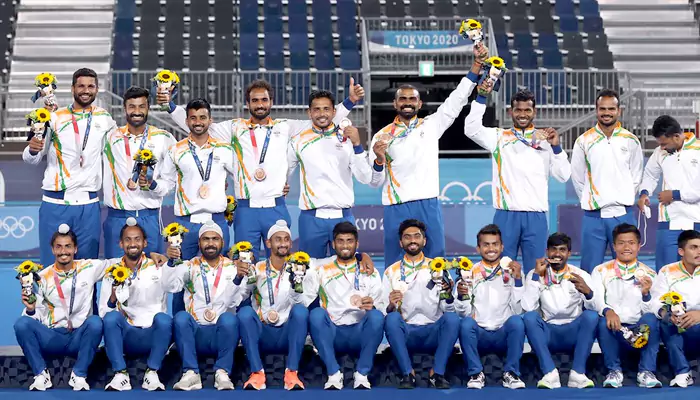
Cricket may dominate headlines, but hockey remains the sport that put India on the global map
The year was 1948. Just a year after gaining independence, India stepped into Wembley Stadium to face Great Britain—the very nation it had broken free from. The occasion was the Olympic hockey final. Ninety minutes later, the scoreboard showed 4–0 in India’s favour. That wasn’t just a gold medal; it was a statement.
This August, as India marks its 79th year of independence, it’s the perfect time to reflect on the sport that first carried our flag to the global stage—field hockey. Long before cricket stadiums filled television screens, hockey was the heartbeat of Indian sport, delivering moments of unmatched dominance.
India’s Olympic hockey debut in 1928 was nothing short of a masterclass. They won every game, didn't concede a single goal, and beat the Netherlands 3–0 for their first gold. Over the next three decades, the “Men in Blue” went on to win six consecutive Olympic gold medals (1928, 1932, 1936, 1948, 1952, 1956), staying unbeaten for 30 straight matches.

Credit: theteenagertoday
Legends like Dhyan Chand—who scored over 570 goals in his career—turned hockey into an art form. The 1932 Los Angeles Olympics saw India crush the USA 24–1, a record margin that still stands. In 1952, Balbir Singh Sr. scored five goals in the final against the Netherlands, setting another Olympic record that remains unbroken to this day.
By the time they lost their first Olympic match in the 1960 Rome final (0–1 to Pakistan), India had established itself as the most dominant team in hockey history.
The 1948 London gold will always hold a special place in history. It wasn’t just about the scoreline—it was about standing beneath the tricolour as it rose above the Union Jack in the host nation’s capital. That moment remains one of the most iconic in Indian sporting history.

Credit: Sportstar
In the 1964 Tokyo Olympics, India reclaimed gold by defeating Pakistan 1–0 in a tense final. Two years later, they added the 1966 Asian Games gold to their tally. By the late 70s, India had extended their success to the World Cup, winning the 1975 edition in Kuala Lumpur by beating Pakistan 2–1 in the final.
The 1980 Moscow Olympics marked India’s eighth and final gold medal, secured with a 4–3 victory over Spain. However, the introduction of synthetic turf soon altered the game’s dynamics. Over the following four decades, India’s dominance on the global stage diminished, although it remained a powerhouse within Asia.

Credit: The Bridge
From 1981 to 2010, the team secured several Asian titles, including four Asian Games gold medals (1966, 1998, 2014, 2022) and three Asia Cups (2003, 2007, 2017). They also became the most successful team in the Asian Champions Trophy, winning it a record five times (2011, 2016, 2018, 2023, 2024).

Credit: The Bridge
After a 41-year Olympic medal drought, India returned to the podium at Tokyo 2020, where they won bronze by defeating Germany 5–4. Four years later, at the Paris 2024 Olympics, they secured another bronze, beating Spain 3–2. In addition to these back-to-back Olympic medals, India also captured the Asian Champions Trophy titles in both 2023 and 2024, underlining their revival as a competitive force.

Credit: News18
Today, under captain Harmanpreet Singh—India’s top modern-day scorer with 205 goals—the team ranks 8th in the FIH world standings. While they pursue the elusive ninth Olympic gold, their 30 official international titles, including 8 Olympic golds, and a record for scoring more goals than any other nation in Olympic history, keep them at the core of Indian sporting pride.